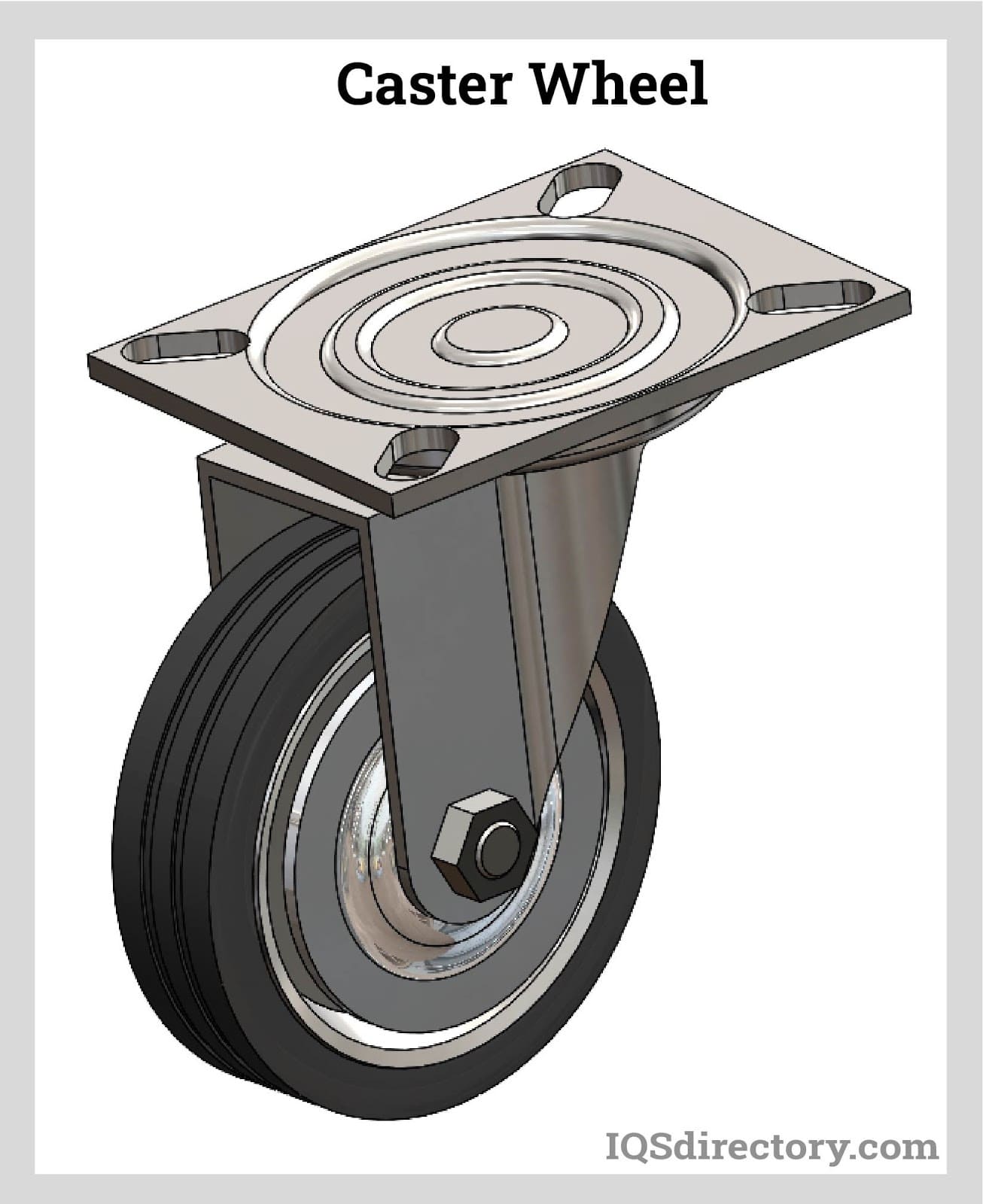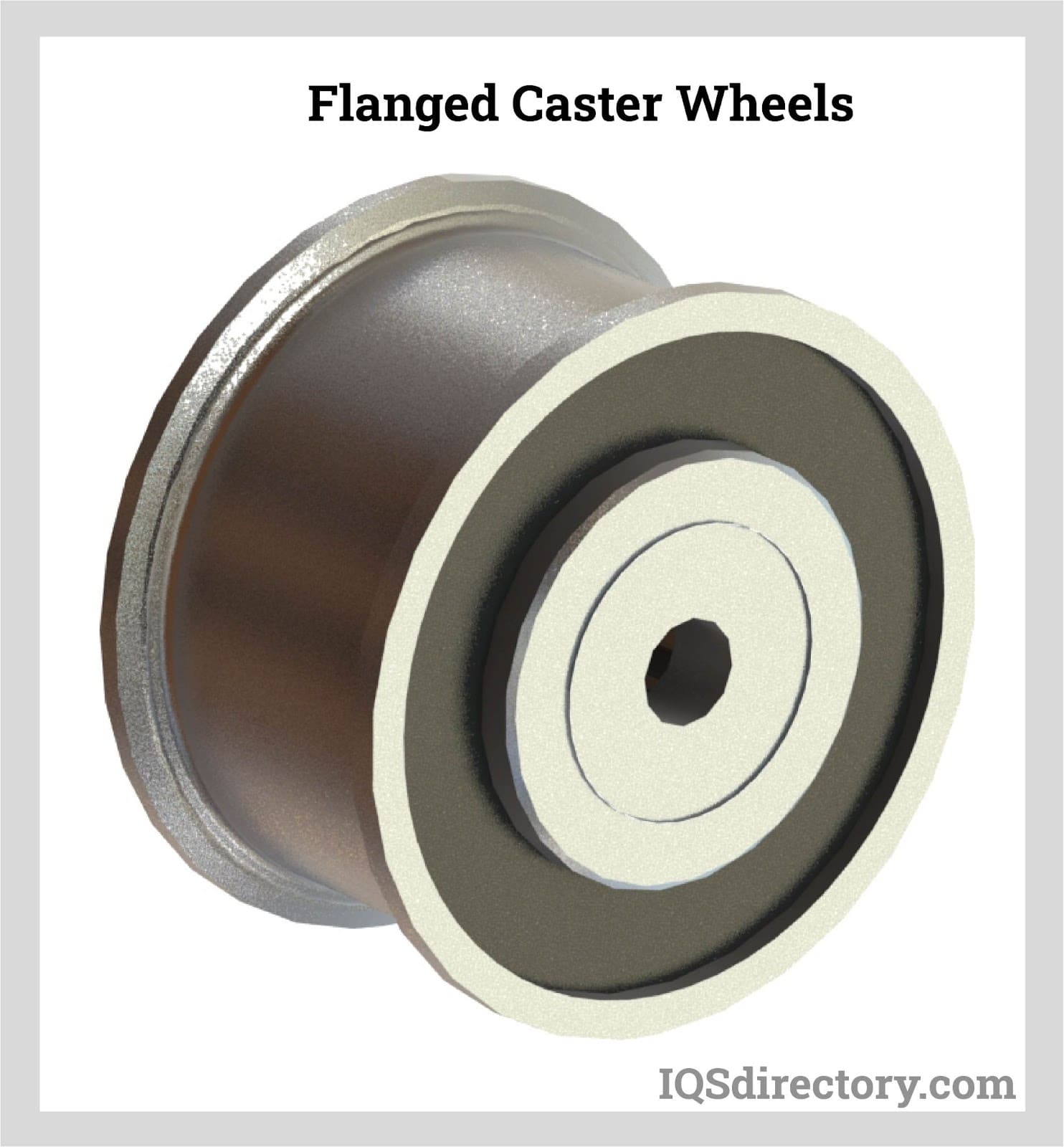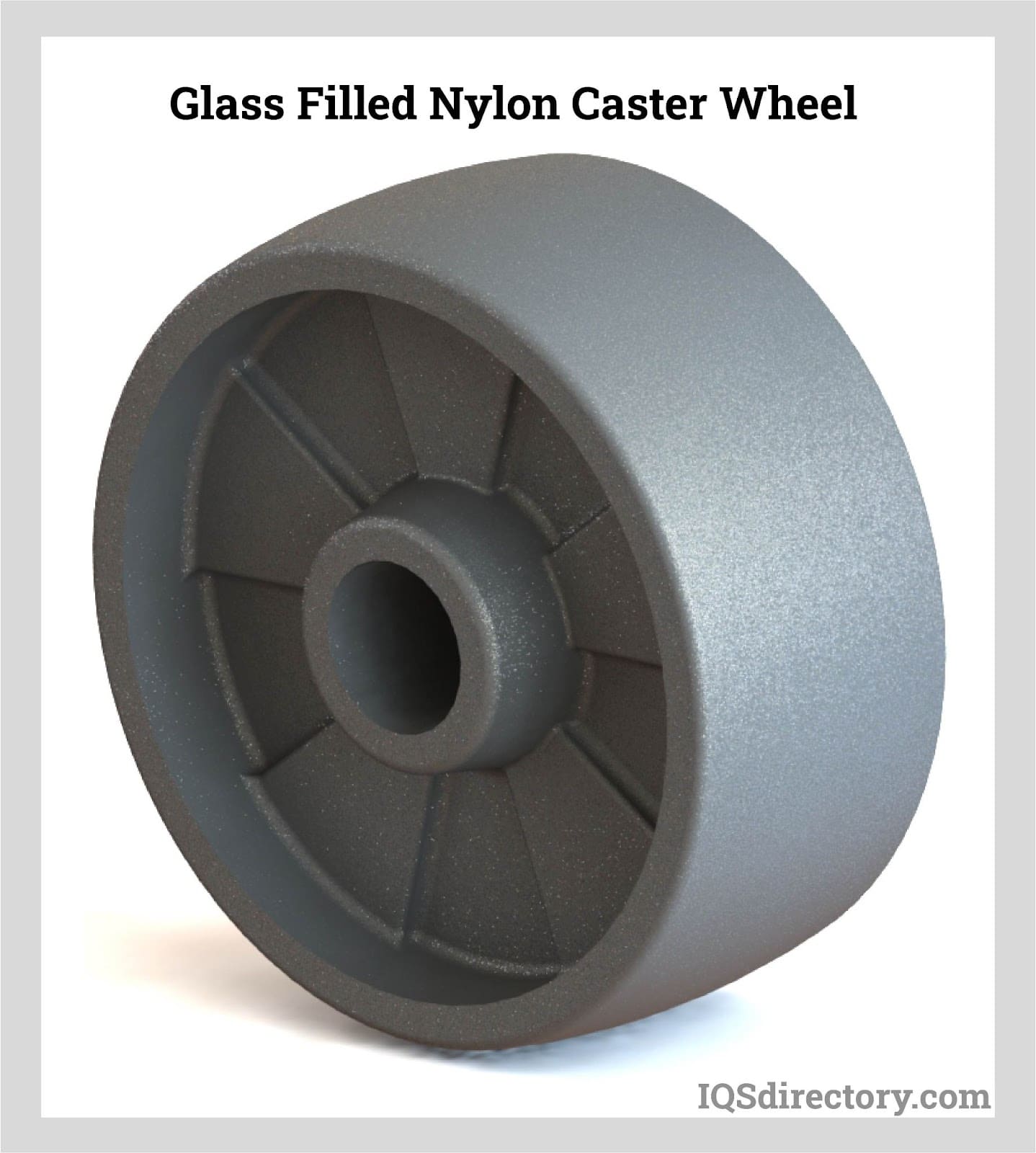Caster Wheels
Castor wheel is another word for a caster. In addition to being utilized for carrying loads, it is also used for furniture, trolleys, and wheelchairs. There are several types of caster wheels, including swivel steam, fix- plate, and swivel plate types. Additionally, this caster wheel comes in various sizes, forms, and specifications.

Polypropylene (PP) and other plastic resins are the most common materials used to make caster wheels. The caster wheel’s weight-bearing capabilities and intended use are considered when selecting this plastic material. Additionally, various colored caster wheels can be produced based on customer needs.
Types of Caster Wheels
Cast Iron/Stem-Steel Caster Wheels
They roll easily with little effort and are resistant to abrasion. In addition, these wheels can resist extremely high temperatures, have a long lifespan and are designed for high-volume applications.
Flanged Caster Wheels
The flanged wheel's operation on steel tracks is intended to reduce steering and rolling effort. By rolling on tracks, flanged caster wheels provide the added benefits of lessening the toll that load capacities take on flooring, enabling bigger capacities, and simpler rolling. The majority of these wheels are made from steel or cast iron due to the strength and durability provided by these materials.

Forged Steel or Ductile Steel Caster Wheels
These wheels are employed when protecting the floor is not a concern and floor-protecting wheels cannot support a load’s weight. The robust wheels can tolerate high temperatures, absorb shock and impact without breaking, and are unbreakable in normal use. Forged steel wheels have the highest load capacity, impact strength, and rollability of any caster wheels as compared to ductile steel wheels.
Glass-Filled Nylon Caster Wheels
These wheels, specifically developed to endure extreme temperatures, are constructed from a mixture of nylon and glass. As a result, these wheels resist strong impacts, are resilient, non-marking, extremely durable, and resistant to oils, greases, and cleaning solutions.

Hard Rubber Caster Wheels
Hard rubber caster wheels are usually available in black or grey and have a one-piece molded structure. Hard rubber wheels won't flatten while being loaded, unlike soft rubber wheels, and have a larger load capacity than soft rubber. They provide simple rolling, simple starting, and excellent longevity. Most chemicals, oils, grease, solvents, and cleaning agents are resistant to hard rubber wheels.
Phenolic Caster Wheels
Phenolic wheels are a popular commodity option made of phenolic resin and macerated canvas and designed largely for push/pull applications. Because they are strong and resistant to chemicals and oil, phenolic wheels facilitate movement.
These wheels are suggested for use on hard surfaces. However, they should not be used in wet or heavily-debris-filled settings. Their use is not advised for use on subpar floors or for towing at high speeds. A phenolic caster wheel turns into a sponge when it sustains an impact chip and is exposed to moisture. As a result, the phenolic caster wheel's shape will enlarge and change, losing its ability to move objects.
High-Temp Phenolic Caster Wheels
The wheels are constructed from phenolic resins and macerated canvas. Phenolic, hi-temp wheels are non-conductive, non-marking, floor-protective, and extremely durable. They can withstand stress loads. They work best in dry heat applications like convection ovens for bakeries and other things.
Pneumatic Caster Wheels
Rubber wheels with air bladders provide optimal floor protection and flexibility to move over various obstacles. Pneumatic wheels offer cushioning and stress absorption, making them perfect for transporting delicate loads over various floor surfaces. They are well-suited for aerospace and other applications.
Polyolefin Caster Wheels
These wheels have a robust tread, are lightweight, affordable, and can resist harsh circumstances. They protect the floor and have superior abrasion resistance than hard rubber wheels while also being non-marking and non-conductive. These wheels are resistant to water, oils, grease, solvents, and many chemicals, making them ideal for bakeries, dairies, food processors, meat processors, laundries, supermarkets, warehouses, and manufacturing.
Polyurethane on Cast Iron Caster Wheels
Cast iron wheels that have polyurethane mechanically linked to them have a longer wear life and more capacity than rubber, yet they won't scratch or mark floors like steel or cast iron wheels will. Polyurethane wheels are designed to endure permanent flat patches in the tread and have an unsurpassed durability compared to rubber tread wheels. This results in a smooth ride over uneven terrain. Most solvents, oils, and floor detritus are rejected by polyurethane.
Polyurethane on Polyolefin Caster Wheels
Precision-molded polyurethane is mechanically linked to a polyolefin core to create these wheels. The performance of these wheels includes simple rolling, floor protection, non-marking, and non-conductive properties. Most solvents, oils, and floor detritus are rejected by polyurethane.
Polyurethane on Aluminum Caster Wheels
With precision-molded, high-quality polyurethane chemically bonded to a smooth, polished aluminum core, these wheels have capacities comparable to those of steel wheels, roll more easily than rubber wheels, and outlast them as well. This design creates a versatile and robust wheel. In addition, these wheels have excellent abrasion, grease, and chemical resistance, are non-marking, and provide excellent floor protection.
Rubber Balloon on Aluminum Caster Wheels
These wheels have an extremely resilient and mobile extra thick, precisely molded grey rubber tread chemically linked to an aluminum core. On uneven terrain, these wheels offer a smooth, cushioned ride. In addition, these wheels are non-marking, non-conductive, and provide exceptional floor protection.
Choosing the Correct Caster Wheels Manufacturer
To make sure you have the most positive outcome when purchasing Caster Wheels from a Caster Wheels Supplier, it is important to compare at least 4 or 5 Manufacturers using our list of Caster Wheels manufacturers. Each Caster Wheels Supplier has a business profile page that highlights their areas of experience and capabilities and a contact form to directly communicate with the manufacturer for more information or request a quote. Review each Caster Wheels company website using our proprietary website previewer to get an idea of what each business specializes in, and then use our simple RFQ form to contact multiple Caster Wheels companies with the same quote.

